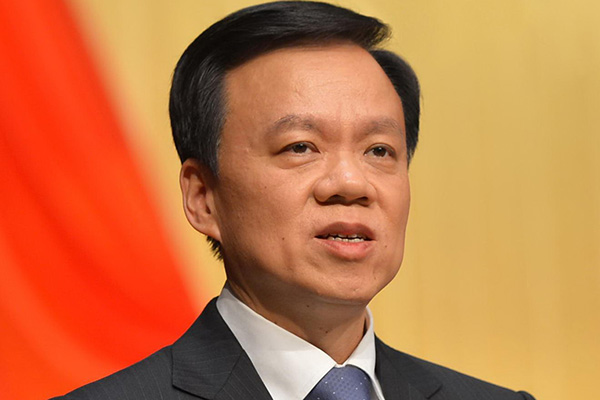 |
|
Chen Min'er, the Party chief of Guizhou. [Photo provided to China Daily] |
While many coastal provinces have benefited from the soaring growth of the manufacturing sector but now suffer from the consequences of its downturn, their inland counterparts such as Guizhou now have an alternative, energy-efficient path for growth-to go digital and go sustainable.
The southwestern province's move is in line with the 13th Five-Year Plan (2016-20), which encourages energy-saving and resource-efficient transition and upgrading.
Guizhou is going full steam ahead to tap into the big data business, launching the country's first big data pilot zone, focusing on big data sharing, application, innovation and security, and has also launched the Guiyang Big Data Exchange in the capital city, as well as the country's first local big data regulation.
"Guizhou promises to offer all-around services to big data projects and create a favorable business environment attracting key enterprises to invest here," said Chen Min'er, the Party chief of Guizhou.
"Also, we are sparing no efforts to offer preferable working conditions for talented big data professionals, who are willing to relocate to Guizhou," Chen added.
With such policy support, Guiyang Longmaster Information & Technology Co Ltd has opened what it calls an "Internet Plus hospital" service, adopting big data technology, where patients can be treated online and from afar by top-level doctors from leading hospitals in first-tier cities.
On average, the companies' online medical services are priced between 2,000 yuan ($300) and 3,000 yuan, depending on what services consumers want.
For this year's business expansion, the company will focus on chronic and serious diseases, such as heart attacks and cancer.
The national and regional economic planners visited the company last year and encouraged it to further develop its "Internet Plus" healthcare services.
"This type of remote healthcare service could solve many problems, such as the imbalance in national medical resources, and difficulties in accessing treatment and advice for patients in remote regions," said Feng Qiujing, a spokeswoman for the company.
